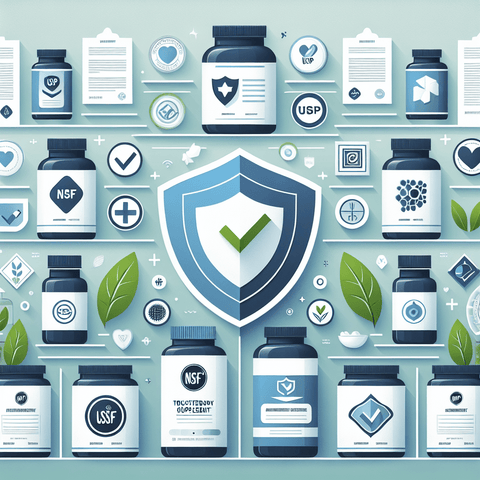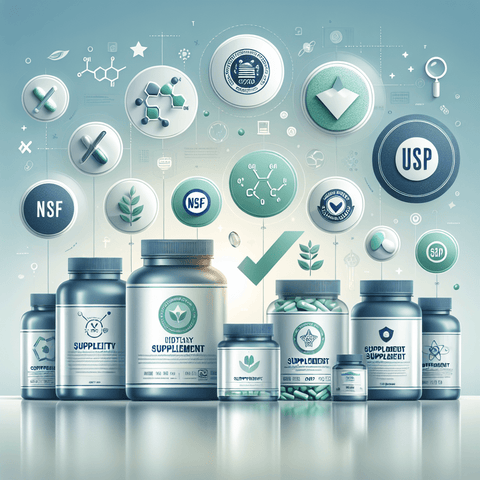Introduction
In today's health-conscious society, dietary supplements have become a cornerstone of personal wellness regimens. From boosting immunity to enhancing athletic performance, consumers are increasingly turning to supplements to fill nutritional gaps and support overall health. However, with the booming supplement industry comes an important responsibility: how can consumers ensure that the products they purchase are safe, effective, and trustworthy? The significance of selecting reliable supplement brands cannot be overstated, as the quality of these products directly impacts health outcomes, safety, and trust.
The global dietary supplement market has experienced exponential growth over the past decade, driven by rising health awareness, an aging population, and a surge in preventive healthcare. According to industry reports, the market is projected to continue expanding, making it vital for consumers to develop skills in identifying reputable brands and products. Unfortunately, not all supplement brands adhere to stringent quality standards, leading to risks such as contamination, mislabeling, or ineffective ingredients. This underscores the need for consumer education and vigilance when choosing supplements.
What does it truly mean for a supplement brand to be trustworthy? At its core, a trustworthy brand consistently delivers safe, high-quality products that meet or exceed regulatory standards, maintain transparency about their sourcing and manufacturing processes, and uphold integrity in their marketing practices. Trustworthy brands also prioritize safety tests, third-party certifications, and clear labeling, allowing consumers to make informed decisions. The subsequent sections will explore how to identify such brands, verify their quality, and confidently select supplements that support your health goals.
Trustworthy Supplement Brands in Nutritional Supplements
Defining "trustworthy" within the context of dietary supplements involves a multifaceted approach. It encompasses safety, efficacy, transparency, and integrity—cornerstones that ensure consumers get quality products without unnecessary risks. A trustworthy supplement brand is one that adheres to regulatory standards, performs rigorous testing, and provides consumers with clear and honest information about their products.
Safety is paramount, meaning the products are free from contaminants, allergens are clearly disclosed, and ingredients are accurately labeled. Efficacy relates to whether the supplements deliver promised benefits, which depends on sourcing quality ingredients and manufacturing processes. Transparency involves openly sharing information about sourcing, testing, and manufacturing practices. Integrity refers to honest marketing, no false claims, and ethical relationships with consumers and suppliers.
Consumers should prioritize reputable brands to ensure their health is protected, avoiding the risks associated with inferior products, such as exposure to harmful contaminants, misleading labels, or substandard ingredients. To quickly identify trustworthy brands, look for third-party testing logos such as NSF, USP, or Informed-Choice, which validate the quality and purity of supplements. Additionally, transparent labeling that includes detailed ingredient information, sourcing data, and manufacturing practices is a strong indicator of reliability.
Reliable Supplement Manufacturers: Ensuring Quality and Consistency
At the core of trustworthy supplements are reputable manufacturers committed to quality control and consistency. These manufacturers operate under strict standards, including Good Manufacturing Practices (GMP), which regulate every step from sourcing raw materials to packaging finished products. Ensuring a manufacturer follows GMP is essential because it minimizes the risk of contamination, dosing inaccuracies, and product variability.
Characteristics of reliable supplement manufacturers include adherence to internationally recognized quality standards, regular third-party testing, transparent ingredient sourcing, and thorough documentation. Notable manufacturers often establish quality assurance programs, perform batch testing, and participate in industry certifications to uphold standards. When selecting supplements, it's wise to research whether the manufacturer complies with regulatory bodies like the FDA or equivalent agencies in other countries.
Consider the case of a reputable brand producing vitamin D supplements. Their commitment to GMP compliance, independent testing, and transparency about sourcing ensures the consumer receives a product that is safe and effective. Poor-quality manufacturing can result in contaminated products or insufficient active ingredients, increasing health risks. Therefore, verifying manufacturer standards is critical—look for information about their quality assurance processes and certifications on official websites or product labels.
Certified Dietary Brands: Signaling Credibility and Safety
Certification from independent organizations offers an additional layer of assurance for consumers. Certifications such as NSF International, USP (United States Pharmacopeia), and Informed-Choice are rigorous processes that test supplement products for purity, potency, and safety. These third-party validations are crucial because they provide confidence that a product has been objectively tested and meets high standards.
The certification process typically involves comprehensive testing of raw ingredients, finished products, and manufacturing practices. For example, USP verification involves testing for contaminants, verifying ingredient levels, and ensuring proper labeling. Similarly, NSF certification confirms that the supplement is free from prohibited substances and contaminants, which is especially important for athletes or those with sensitivities.
Top certified brands often prominently display these labels on their packaging, signaling their commitment to quality. Consumers should learn to recognize and interpret these symbols—an NSF or USP logo indicates compliance with strict standards. When shopping, always prioritize certified products, especially if your health depends on the purity and potency of the supplement.
For example, when exploring vitamin K supplements, choosing a certified product ensures that the supplement contains the stated amount of vitamin K without harmful contaminants. Certification not only boosts safety and efficacy but also fosters consumer confidence in the product’s integrity.
Transparent Supplement Companies: Building Consumer Trust through Openness
Transparency in the supplement industry is increasingly valued by consumers seeking honest and reliable information about what they consume. A transparent supplement company openly shares detailed information about their sourcing, manufacturing, testing, and quality assurance processes. This openness fosters trust and empowers consumers to make informed choices.
Transparent brands disclose comprehensive ingredient lists, including sourcing details, and provide access to testing results, such as Certificates of Analysis (COA). They may also inform customers about their manufacturing locations, quality protocols, and sustainability initiatives. For example, a brand producing magnesium supplements might provide detailed info on the sourcing of raw materials, manufacturing standards, and lab testing to verify purity.
Transparency impacts consumer confidence significantly; knowing that the company is willing to share verifiable data creates a sense of safety and honesty. Questions consumers should ask include: Does the brand provide batch-specific testing results? Are ingredient sources disclosed? How does the company ensure quality and safety? Brands that answer these questions openly demonstrate their commitment to consumer health and trustworthiness.
Quality-Tested Supplement Labels: Verifying Product Integrity Before Purchase
Before purchasing any supplement, scrutinizing the label for signs of quality testing is essential. Look for endorsements or seals from reputable third-party labs such as NSF, USP, or Informed-Choice, indicating that the product has undergone rigorous testing. These marks verify quality and can help prevent purchasing contaminated or mislabeled products.
Independent testing laboratories analyze supplement batches for contaminants like heavy metals, microbial contamination, and undeclared ingredients. Batch testing ensures manufacturing consistency and ingredient integrity. Regular quality testing reduces the risk of safety issues, especially for products that are consumed long-term.
For consumers, understanding common certification labels helps in making informed decisions. For example, a supplement labeled “GMP Certified” complies with good manufacturing standards, while “USP Verified” indicates that the product meets specific quality and potency benchmarks. When evaluating labels, avoid products with vague claims—always seek clear indications of third-party testing and certification to protect your health.
Reputable Health Supplement Providers: Building a Trustworthy Purchase Experience
In addition to product quality, choosing reputable providers ensures a seamless and safe purchasing experience. Trusted providers maintain high standards in sourcing, storage, and customer service, offering peace of mind to consumers. Evaluating a supplement provider involves assessing reviews, professional endorsements, and policies such as clear return policies and transparent information sharing.
Reputable online and brick-and-mortar stores offer products from verified brands, often provide detailed product descriptions, batch-specific testing data, and customer support. Shopping from trusted providers minimizes the risk of counterfeit or expired products. You can also benefit from expert guidance, product recommendations, and safety advice when buying from well-established sellers.
To identify trustworthy stores, consider factors like customer feedback, accreditation, and possession of quality assurance certifications. Always check whether the retailer offers secure payment options, detailed product information, and easy return policies. This comprehensive approach helps safeguard your health and investment in your wellness journey.
Conclusion
Choosing trustworthy supplement brands is a foundational step toward ensuring safe, effective, and reliable support for your health goals. By understanding the key indicators of trustworthiness—such as third-party certification, manufacturing standards, transparency, and reputable providers—consumers can navigate the complex supplement landscape confidently. Prioritizing quality and safety not only minimizes health risks but also enhances the efficacy of your supplementation regimen, offering peace of mind and better overall wellness.
Remember, due diligence is essential: read labels thoroughly, verify certifications, inquire about sourcing and manufacturing practices, and purchase from reputable providers. An informed choice today promotes healthier choices tomorrow.
Q&A Section
Q: How can I recognize a trustworthy supplement brand at a glance?
A: Look for third-party certification logos such as NSF or USP on the packaging, transparent ingredient lists, and clear information about sourcing and manufacturing practices. Brands that openly share testing results and adhere to GMP standards are generally more reliable.
Q: Why is third-party testing important for supplements?
A: Independent third-party testing verifies the purity, potency, and safety of supplements, helping to ensure that what’s on the label matches the actual product and that it is free from contaminants or unauthorized ingredients.
Q: What should I consider when choosing a supplement provider?
A: Evaluate their reputation through reviews, certifications, and policies; ensure they source from reputable brands; and look for transparent information about product testing and quality assurance.
Q: How does transparency influence supplement safety?
A: Transparent brands willingly share detailed sourcing, manufacturing, and testing information, which allows consumers to verify product quality and reduce uncertainty regarding safety and efficacy.
Q: Are certifications such as NSF and USP sufficient to guarantee supplement safety?
A: They are strong indicators of quality and safety, but consumers should also consider brand reputation, transparency, and manufacturer practices. Certifications assist in narrowing down trustworthy options but are part of a broader assessment.
Important Keywords
- Trustworthy supplement brands
- Third-party certifications
- Supplement safety
- Authentic manufacturing practices
- Independent testing
- Quality assurance
- Transparent labeling
- Reputable supplement providers
- GMP compliance
- Supplement verification
- Safe nutritional supplements
- Brand credibility
- Supplement sourcing
- Consumer confidence in supplements



